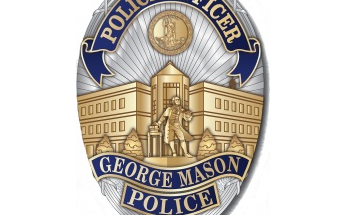Safety & Emergency Management staff comment on Mason’s testing operations
BY LAURA SCUDDER, COPY CHIEF
As Mason responds to the Delta variant, COVID-19 testing is expected to be ramped up within the coming weeks.
In an email sent on Wednesday, Sept 8, Mason President Gregory Washington expressed that those who receive an email asking to be tested should sign up regardless of vaccination status.
“Because the Delta variant of COVID-19 can occur even among the vaccinated, we are initiating a “dragnet” approach to find and isolate the virus wherever we can, and that includes testing those of us who are vaccinated, as well,” the email stated.
David Farris, executive director of Safety & Emergency Management, said that testing on this scale is a huge feat — and that testing is opening up to the Mason community more than ever.
Not only are unvaccinated individuals and those who might be in high-contact circumstances — such as athletes — tested frequently, but now those who are concerned about possible exposure can receive a test as well, no questions asked.
Jamie Klepek, a nurse practitioner who runs the testing and vaccination operations at Mason, also noted that a new testing site is now open at Eisenhower Hall, which is open Monday-Friday from 10 a.m.-3 p.m. The other testing locations on the Fairfax campus are the Johnson Center and Fenwick Library.
“Our hopes were to be closer to the residential students. So they can just come right from their dorm and get tested, which has been really helpful,” Klepek said.
Klepek stressed the importance of completing the Mason COVID Health Check daily, particularly for those fear they have been exposed or who may be experiencing symptoms.
“If they are having symptoms, it will most likely be a yellow or even a red screen. And then, of course, we encourage them not to come onto campus — to stay in their dorms or their house or wherever. And then they should call Student Health and they can arrange for diagnostic tests,” she explained.
Different than the surveillance testing that Mason offers, Farris noted that diagnostic testing is used for those who are experiencing COVID-19 symptoms.
“Symptomatic or suspected illness is diagnostic testing and everything else is surveillance,” he said.
In the instance that an on-campus student tests positive, the Angel Cabrera Global Center is still available to students as special quarantine housing, though they have other options for isolation if they do not necessarily want to move.
Though Mason’s COVID-19 response has evolved in a number of ways since the pandemic, both Farris and Klepek noted that the way testing has changed is the biggest shift the university has made.
“When they first started testing, they were in the garage, doing drive-thru testing with nasal swabs … Then last fall — or last spring — we moved indoors and we started the saliva testing, and we’re running two labs that are processing those samples,” Klepek said. “And now we can test up to 13,000 a week. So that’s a huge, huge change.”
Klepek also explained that while Mason has shifted gears from doing the mass vaccination clinics at EagleBank Arena, vaccinations are still being provided on campus.
“So we do about 30 vaccines a day … We started at the Johnson Center, and now we’re over at Fenwick. So we’re seeing more of the people who were maybe a little hesitant in the beginning,” she said.
Klepek continued, “And now that Pfizer has been FDA approved, we’re seeing more people coming in to get their shots, they feel more comfortable now getting vaccinated. So that’s kind of the population we’re seeing.”
Both Farris and Klepek encouraged all of those who are able to get the vaccine.
Farris said that the best way for students to gather information on the university’s COVID-19 response and find resources is to visit Mason’s Safe Return to Campus website.




